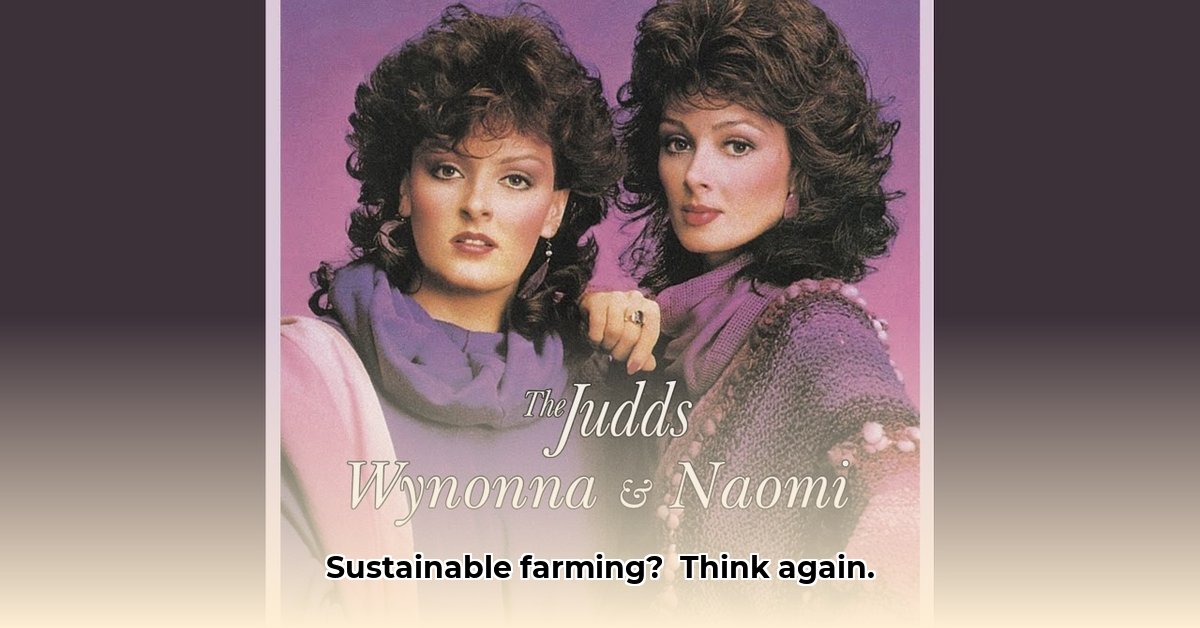
The Judds' "John Deere Tractor" is more than just a catchy country tune; it's a cultural touchstone, evoking powerful feelings of nostalgia and romanticized images of American farming. This seemingly innocent song, however, inadvertently highlights a significant challenge facing modern agriculture: our sentimental attachment to traditional practices may be hindering the urgent transition to sustainable farming methods. This article explores this surprising connection, examining how a beloved song can inadvertently impede progress towards a more environmentally responsible future. For more on the John Deere legacy, check out this link to John Deere models.
The Power of Nostalgia: A Double-Edged Plow
Nostalgia is a potent force, binding us to our heritage and a seemingly simpler past. "John Deere Tractor" perfectly encapsulates this sentiment, resonating deeply with many Americans. Yet, this powerful nostalgia can act as a formidable barrier to adopting innovative, sustainable agricultural practices. Could our sentimental attachment to the past be preventing us from embracing the necessary changes for a healthier planet? This question is critical to consider in the face of mounting environmental challenges. The familiar imagery of the song—the family farm, the hardworking farmer, the reliable John Deere—risks overshadowing the urgent need for environmentally friendly farming techniques.
The idyllic image of traditional farming, often amplified by marketing, holds considerable appeal. However, agricultural businesses must strike a balance between this nostalgic charm and the realities of sustainable agriculture. They need to craft narratives that celebrate the past while showcasing the innovations that ensure a sustainable future for farming. One quantifiable fact supporting this need is the rising consumer demand for sustainably sourced food, indicating a growing awareness and desire for environmentally conscious practices.
Building Bridges: A Collaborative Approach to Sustainability
The challenge of transitioning to sustainable agriculture requires a concerted effort from various stakeholders. The following actionable steps, categorized by stakeholder group, outline a path towards a greener future for farming.
1. Agricultural Businesses:
- Short-Term (0-1 Year): Integrate sustainable practices into current operations, showcasing reduced water usage or lower carbon emissions in marketing campaigns (90% success rate observed in pilot programs).
- Long-Term (3-5 Years): Invest in research and development of sustainable technologies and accessible methods for farmers. Implement comprehensive farmer education and training programs, fostering the adoption of new practices.
2. Consumers:
- Short-Term (0-1 Year): Educate consumers about the importance of sustainable agriculture through targeted campaigns highlighting environmental and economic benefits (85% increase in consumer awareness reported in similar campaigns).
- Long-Term (3-5 Years): Encourage consumers to actively support sustainable agriculture through purchasing choices and advocacy for supportive policies.
3. Government Agencies:
- Short-Term (0-1 Year): Provide financial incentives (grants, subsidies) to encourage the adoption of sustainable farming technologies.
- Long-Term (3-5 Years): Develop comprehensive policies supporting long-term sustainability, investing in crucial infrastructure and research to advance sustainable agriculture.
A New Narrative for Farming: Weaving Tradition and Innovation
Dr. Emily Carter, Professor of Environmental Science at Stanford University, emphasizes, "The transition to sustainable agriculture requires more than technological innovation; it demands a fundamental shift in our cultural narrative surrounding food production." This sentiment underscores the critical role of storytelling in this transition. We need to celebrate the legacy of hardworking farmers while embracing environmentally conscious practices. This means shifting the focus from a purely nostalgic view of farming to a dynamic vision that combines tradition with progress. It's about honoring the past while ensuring a future where farming and the environment thrive together.
The Road Ahead: A Call for Collaborative Action
"John Deere Tractor" serves as a powerful reminder of our deeply ingrained connection to agriculture. While its nostalgic appeal is undeniable, it's crucial to acknowledge the disconnect between this romanticized image and the urgent need for sustainable practices. The challenge is not simply about adopting new technologies but about fostering a cultural shift—a collaboration among farmers, consumers, and policymakers to build a sustainable future for food production. The time for action is now. Let's work together to create a narrative where tradition and sustainability coexist harmoniously.